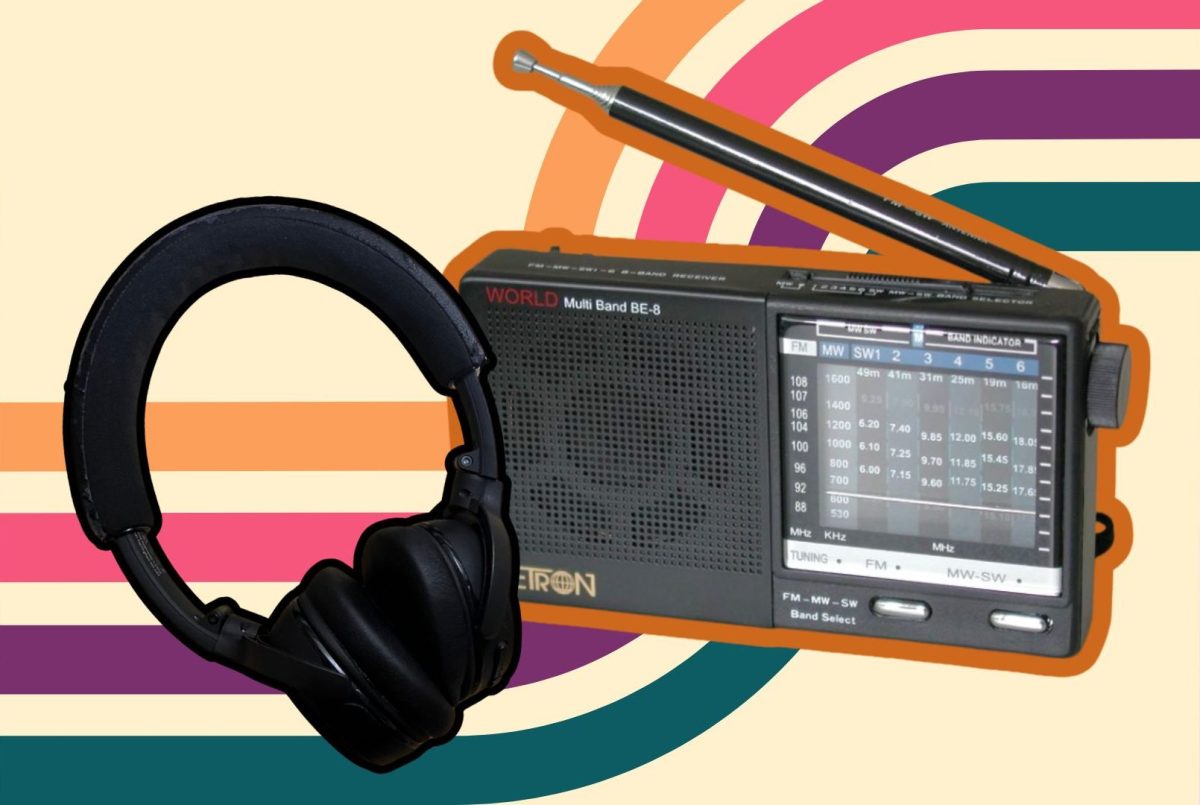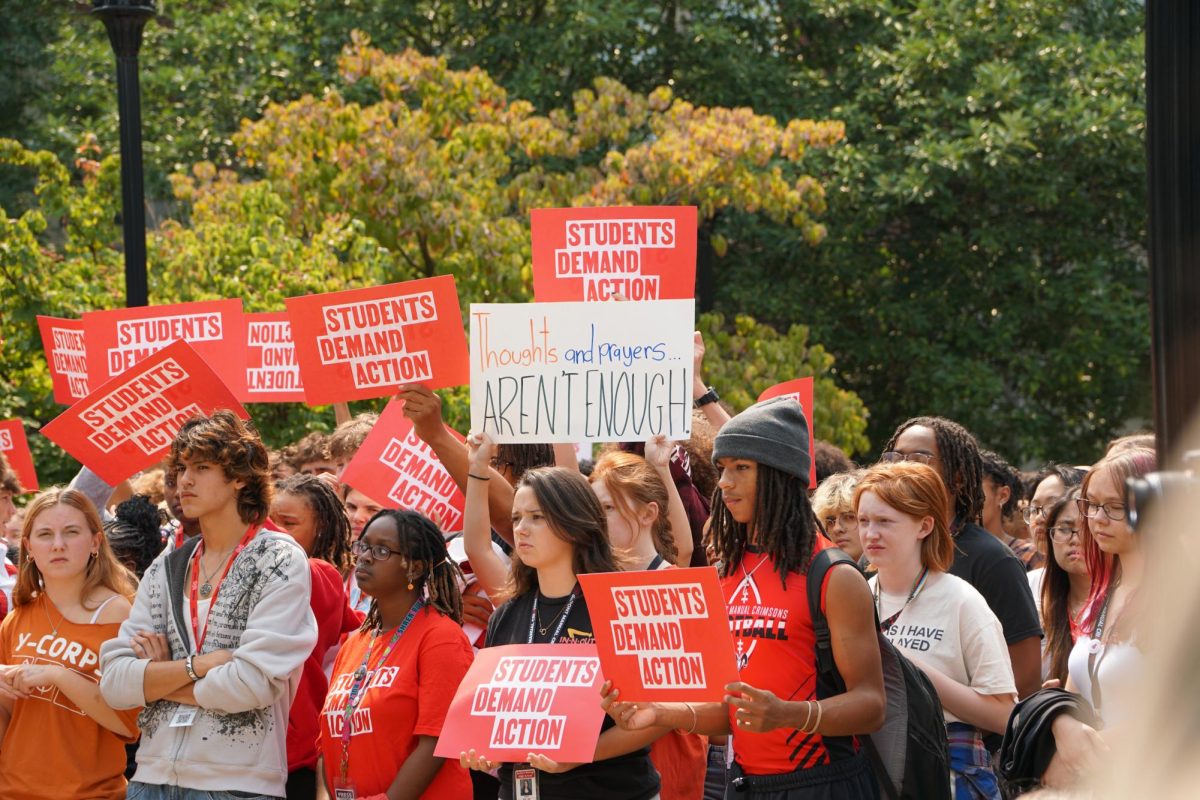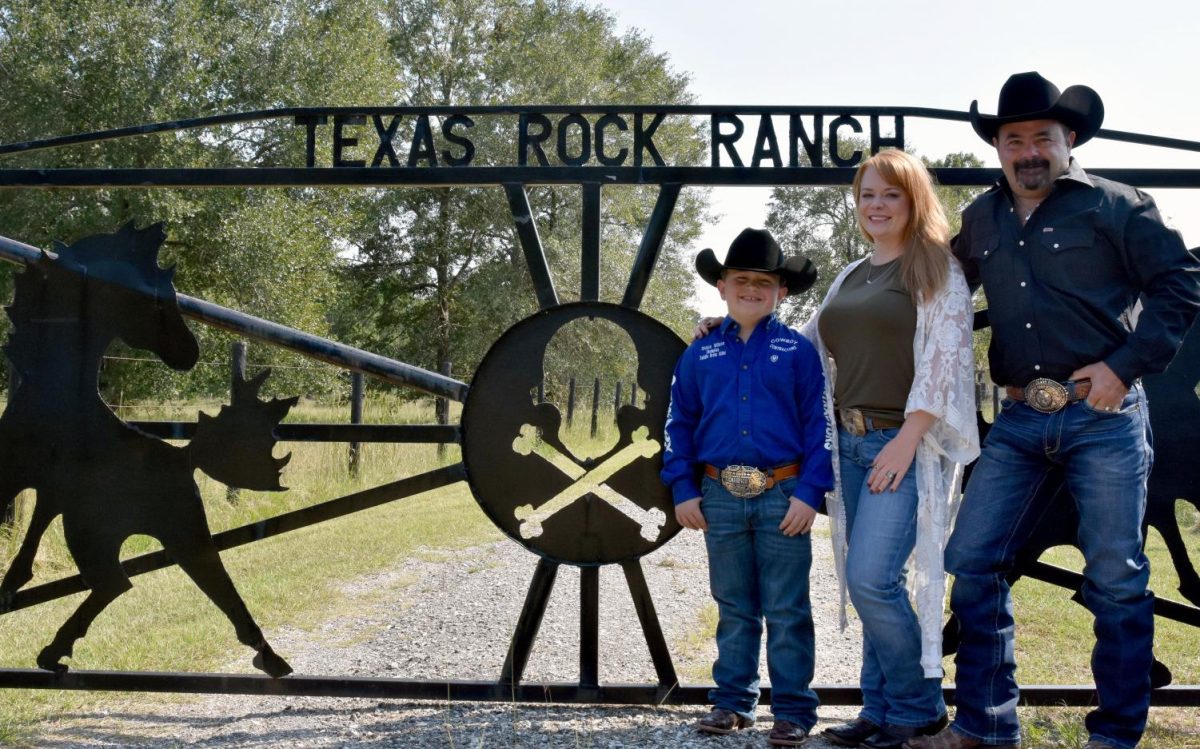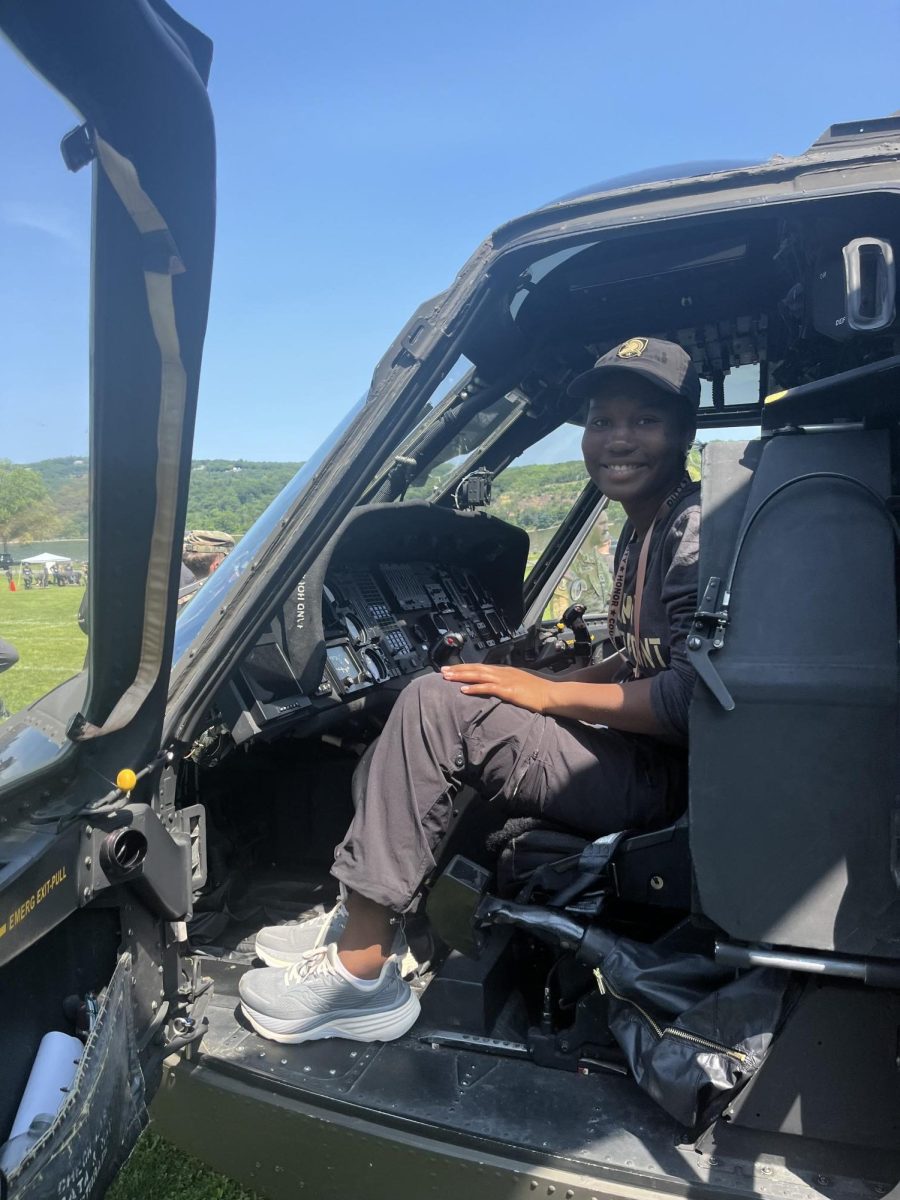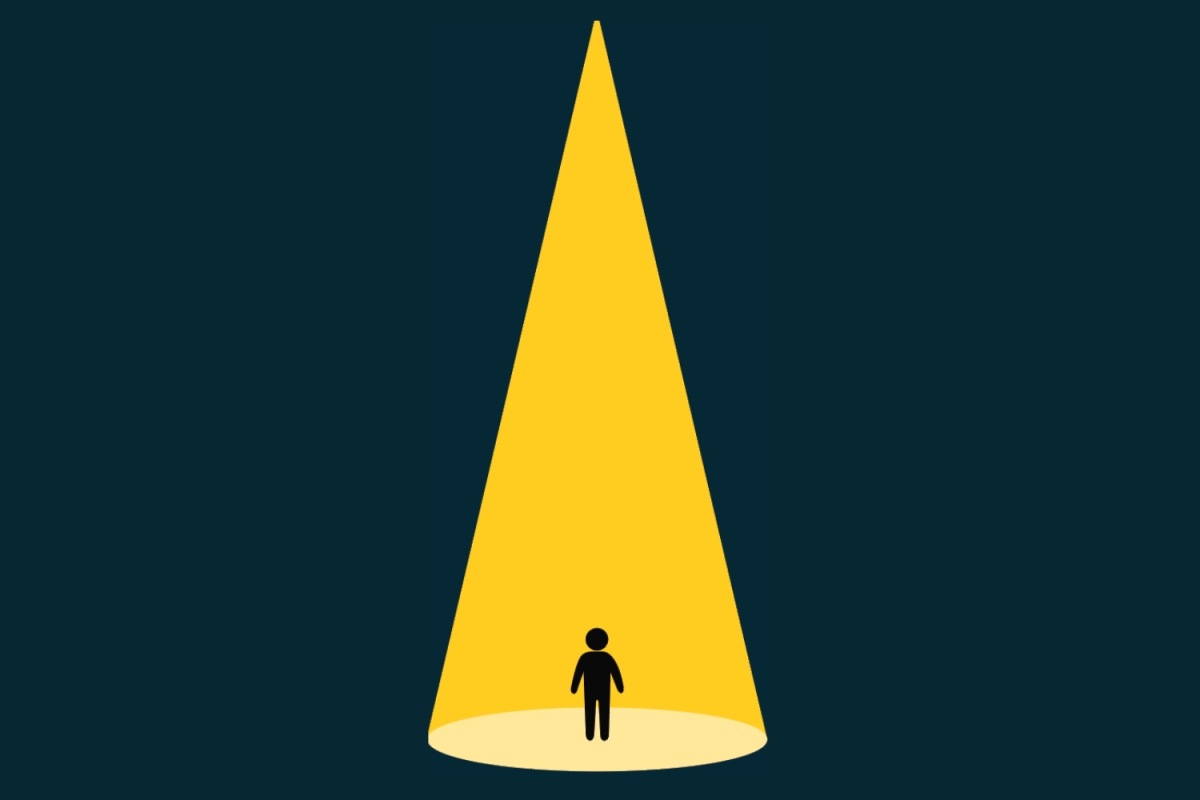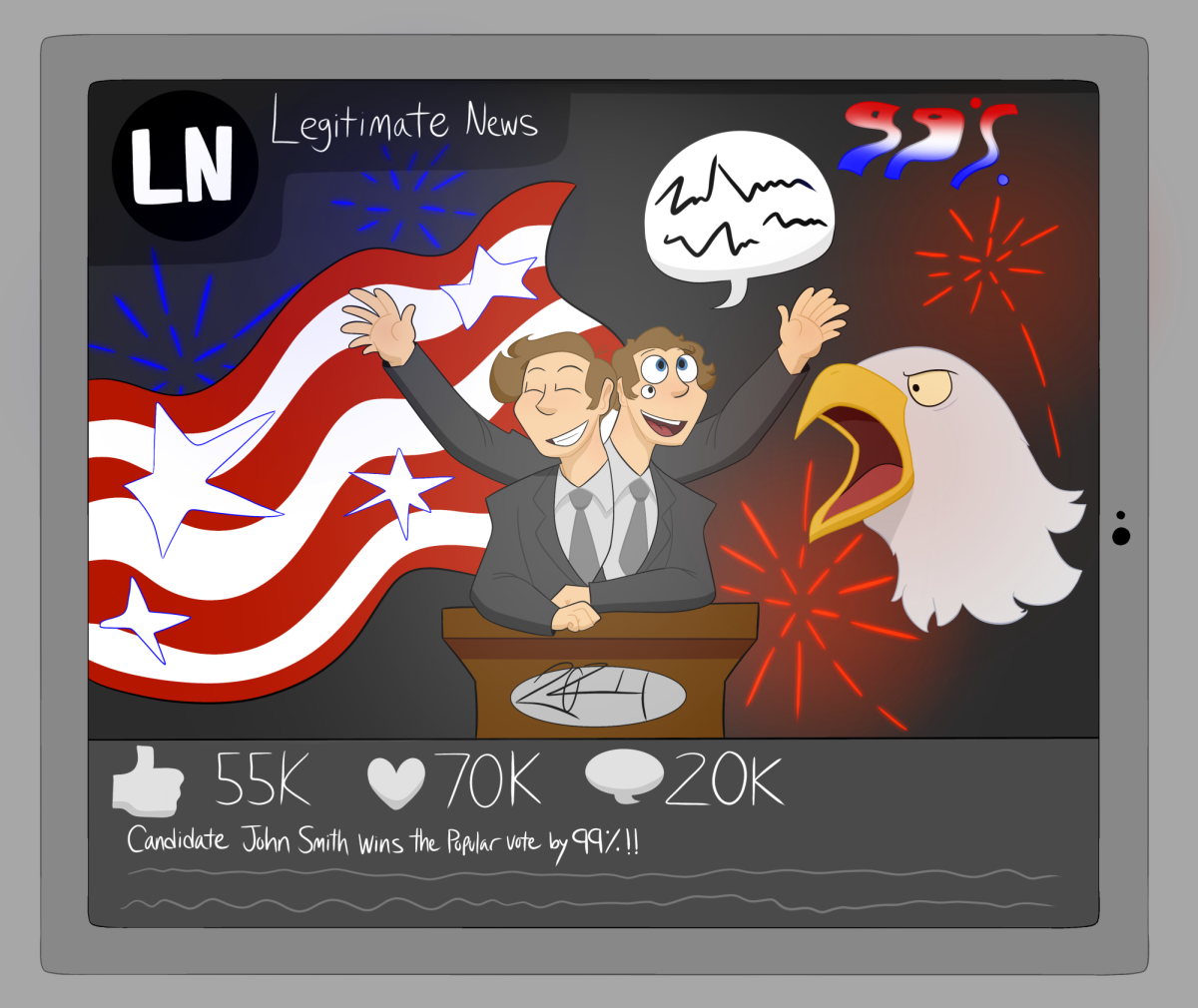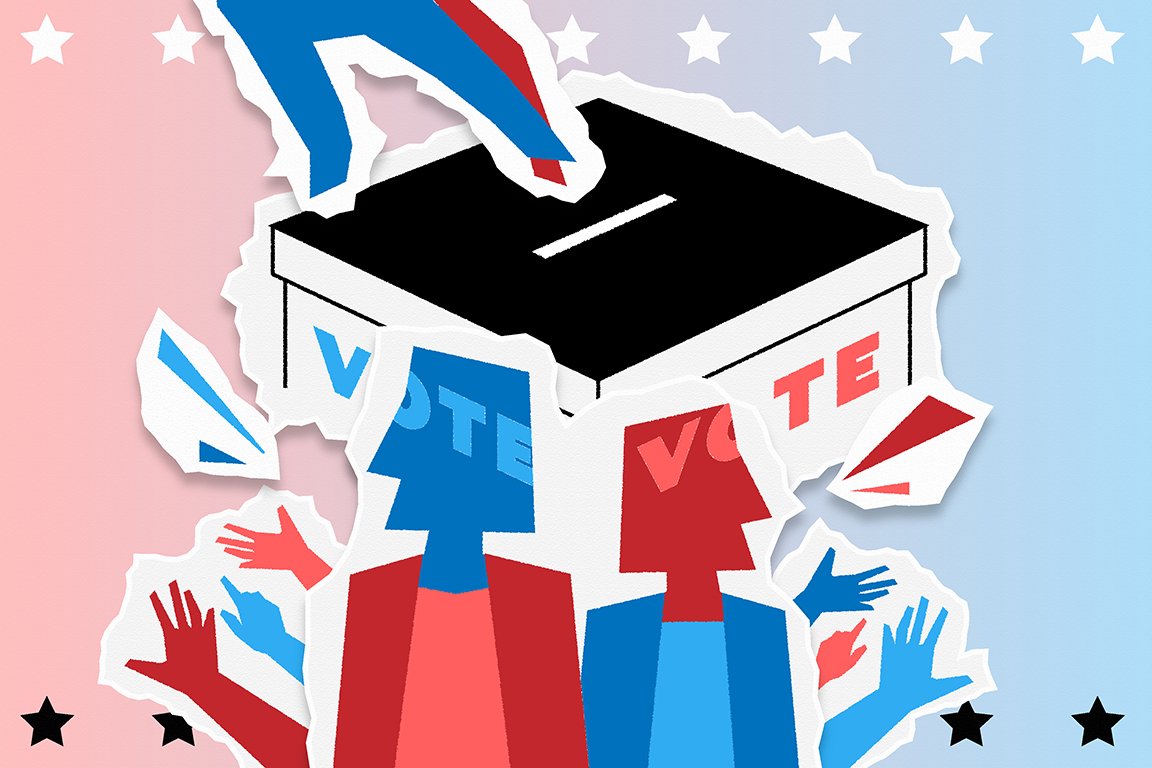Editor’s note: *Indicates source would only agree to be interviewed under the condition of anonymity.
For Henry Duffy (’28), who said he supports former President Donald Trump but admits he’s “very open-minded,” merely talking about politics sparked backlash.
“It was an attack on me,” Duffy said. “It wasn’t even about Trump’s or Biden’s presidency. They were yelling at me for just talking about the presidency.”
School bias
Michael Quintin (’25) said the school curriculum concentrates on topics that are mostly discussed in “left-wing circles,” signaling an ideological bias.
“Maybe ASL was unbiased in the past, but it right now is 100%, I could say with utmost certainty, a left-leaning institution,” Quintin said.
According to an online survey conducted by The Standard Sept. 24-28 with 102 responses, 82% of students believe the school has a left-leaning political bias.
In contrast, Gracie Lamberton (’25) said the school refrains from political debate, thereby not catering to a specific ideology.
“ASL is pretty apolitical in the way that we don’t really talk that much about politics,” Lamberton said. “There isn’t really enough discussion about it to make a solidified opinion on if ASL really leans one way or another.”
Likewise, Interim High School Principal Natalie Maisey said while “students can share their political opinions freely,” the school mandates the political impartiality of teachers to foster an inclusive environment.
Political expression
Jemma Granite (’25) said her liberal beliefs are judged as being extreme within the school.
“Sometimes the left, or even just being democratic, is seen as political extremism,” Granite said. “In a way, it’s sort of seen as being overly ‘woke’. I think that people then roll their eyes and are like, ‘Oh, you’re trying to be too politically correct or too woke.’”
Lamberton said she encounters stereotypes around her political beliefs because of her LGBTQ+ identity.
“I’m publicly a queer woman,” Lamberton said. “A lot of people are going to look at me and automatically believe that I think a certain way, like I’m not willing to listen to people’s opinions who are conservative or anything like that, when that’s completely untrue.”
However, Quintin said expressing opinions beyond the “left-wing” norm leads to more reprisal from the school community.
“If you go against the curve, if you go against the trend here at this school, which is left-wing opinions, and you express right-wing opinions, it’s a pit of vipers,” Quintin said. “It’s people who want to catch you.”
As a result, Quintin said although school should be a place of learning, he feels he must avoid mistakes in order to navigate the tense political culture.
“When it comes to politics, I have to be very careful about how I articulate myself, because with polarization, there’s a lot of word catching,” Quintin said. “This is a place where we’re meant to make mistakes and we’re meant to mess up words, but when it comes to debate, you cannot mess up from the get-go.”
Duffy said students often inaccurately associate him with extreme beliefs due to his political alignment.
“I sometimes feel like my politics are misunderstood,” Duffy said. “People think I’m an insane Trump supporter, like I believe in all his policies and actions. I don’t even support Trump that much. I don’t really support anyone. I just like Trump more as a candidate.”
Andie* said students who don’t align with the Democratic Party can often face social consequences.
“The mainstream media causes a lot of people to have negative opinions of Trump, and anyone who speaks out against the Democratic Party sort of gets blacklisted or canceled by the class,” Andie said.
According to The Standard’s survey, 45% of students have been judged for sharing their political opinions at school.
Furthermore, Andie said he has been attacked and labeled due to his right-wing beliefs.
“I can be labeled as a fascist or something like that, which is totally not true,” Andie said. “I do support Trump for some of his policies, and I obviously disagree with some of the more extremist supporters that support Trump, so it can be challenging to explain myself at times, but overall, I’m not going to stop supporting Trump just because of the few extremist supporters that show their solid back.”
On the contrary, Lamberton said the reason Trump supporters face such responses is because of the personal beliefs and actions of Trump himself, not necessarily due to his policies.
“I understand why people would support Trump because of things like his tax policies,” Lamberton said. “However, I think when you say that you’re a Trump supporter, it automatically connects you to some of the more vile things that Trump has said. The reaction Trump supporters get is less of a reaction to political beliefs and more one of an animosity toward an individual.”
Likewise, Granite said by supporting Trump, students are complicitly associated with his offensive beliefs.
“If you support Trump, I think that that means that there’s a part of you that is bigoted,” Granite said. “That’s why I very much disagree with voting based on issues, like it’s about the candidate themselves. Trump is so known for saying such awful things, whether it’s about women, whether it’s racist, whether it’s xenophobic. You can’t ignore that about him.”
As a result, Granite said the adverse reaction against Trump supporters is often warranted due to Trump’s past malice against certain groups.
“It’s unfair to say those voices are marginalized,” Granite said. “If you were saying you are supporting Trump, that could very easily be offending 10 people that are standing around you in many different ways.”
Looking forward
Andie said the school must decouple itself from ideological bias as conservative voices are “misunderstood a lot.”
“I’d like them to stop promoting liberal values and just foster more neutral spaces for discussion without the teachers challenging people who talk about conservative mindsets and conservative policies,” Andie said. “It’s important to listen to what they have to say before you judge them.”
Lamberton said students must be open-minded and encourage discussion instead of relying on stereotypes.
“A lot of people would find themselves agreeing if they were more willing to have active conversations about it rather than just lump each other into stereotypes
based off of perceived political parties or someone’s political opinions from a while ago,” Lamberton said.
In order to foster more productive dialogue, Granite said the school community needs to dispel its “lack of motivation” when discussing politics.
“There needs to be that sort of attitude shift,” Granite said. “There needs to be a lack of eye-rolling when someone wants to talk about politics or is bringing up politics because that makes it hard, either way, to talk about it.”
Ultimately, Maisey said the community must learn to discuss political beliefs in a way that we can have healthy dialogue across differences.
“I hope that students are able to talk about their political beliefs and to be truly open to listening to another person’s perspective,” Maisey said. “It doesn’t mean you have to agree, it doesn’t mean you have to believe it but to value the fact that every person in this school is different, they have their own background, their own viewpoint, their own perspective. It is the beauty of ASL, the diversity we have.”
This story was originally published on The Standard on October 24, 2024.

